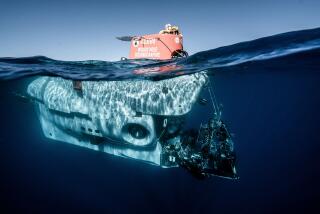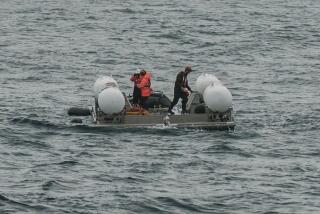A mother waits at the edge of the ocean for a son whose submarine has gone missing
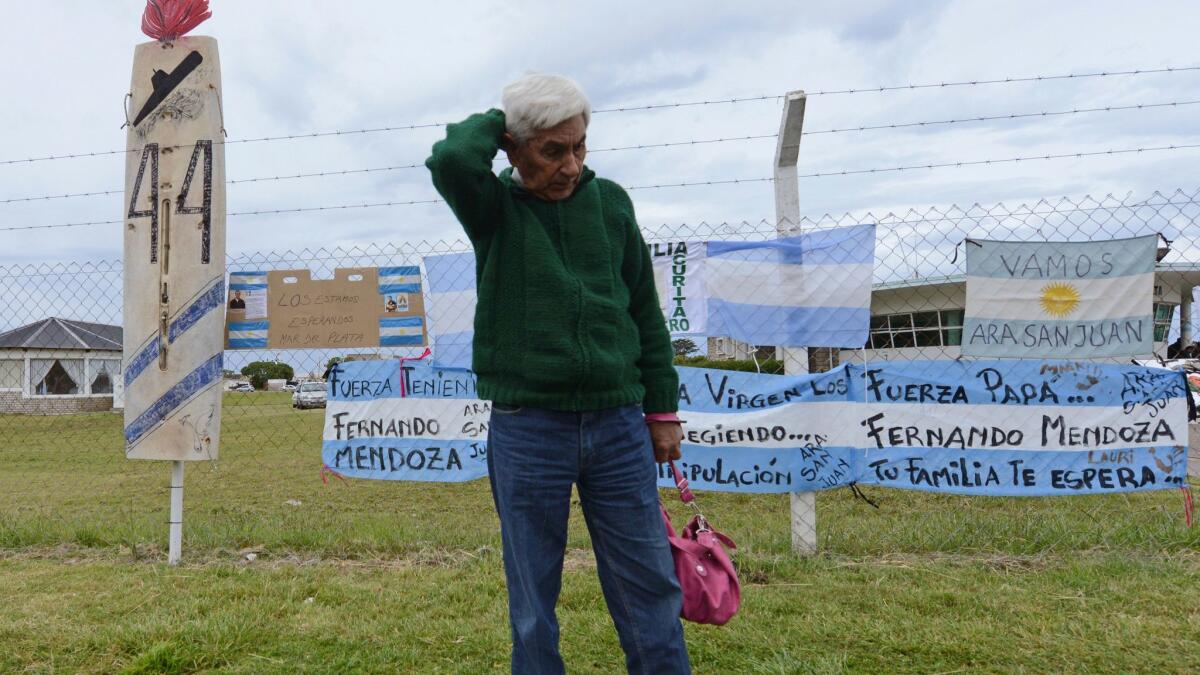
- Share via
Reporting from Mar del Plata, Argentina — Family members of 44 crew members of the Argentine submarine missing for nearly a week have maintained brave faces even as each passing hour complicates chances for a rescue of their loved ones lost at sea.
“Every so often I go to the edge of the ocean and ask that my son be returned to me,” said Maria Victoria Morales, whose son, Lt. Luis Esteban Garcia, was aboard the submarine San Juan when it went missing Nov. 15 in the southern Atlantic. “My mother’s heart tells me he is coming back safe and healthy.”
Morales, 51, is one of approximately 100 relatives of the submarine’s crew who have gathered at a naval base here to await word of the increasingly hopeless search-and-rescue operation. She arrived Saturday from the northern city of San Miguel de Tucuman with her husband and daughter, joining her son’s wife and two infant sons.
The group is experiencing a gamut of emotions as they pass agonizing hours waiting for news from the massive operation off Argentina’s southern coast.
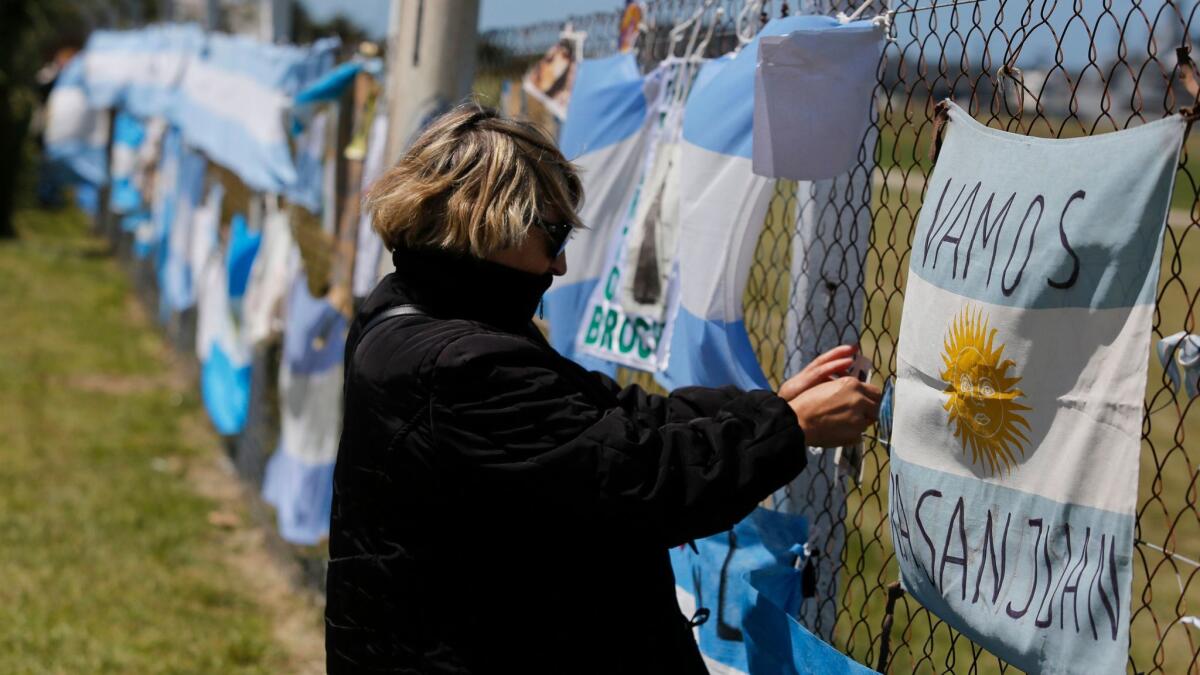
Adding to the anxiety are rumors and news reports that initially offered hope, only to be shot down by cold analysis. The latest such instance occurred Tuesday, when search parties discovered a life raft and reported having seen a flare, both of which were later dismissed as being unconnected to the San Juan.
“We get together, we talk, we give each other strength and encouragement when someone gets anxious or sad,” Morales said of other family members at the entrance to the base. She was among the few speaking to the press as they entered the sprawling base. “This is why we came. We are together.”
With every hour that passes, a tragic ending comes closer.
— Carlos Mendoza, brother of a submarine crew member
Also awaiting word was Carlos Mendoza, brother of crew officer Lt. Fernando Mendoza. He came from Santa Clara del Mar with his wife and father to stand vigil. Before entering the base, Mendoza draped an Argentine flag on a fence where other family members had posted placards and banners. One read, “We are waiting for you,” Others read: “Courage, comrades,” and “We will find you.”
“This movie could have a thousand different endings, some better than others,” said Mendoza, who is a commercial fisherman. “But with every hour that passes, a tragic ending comes closer.”
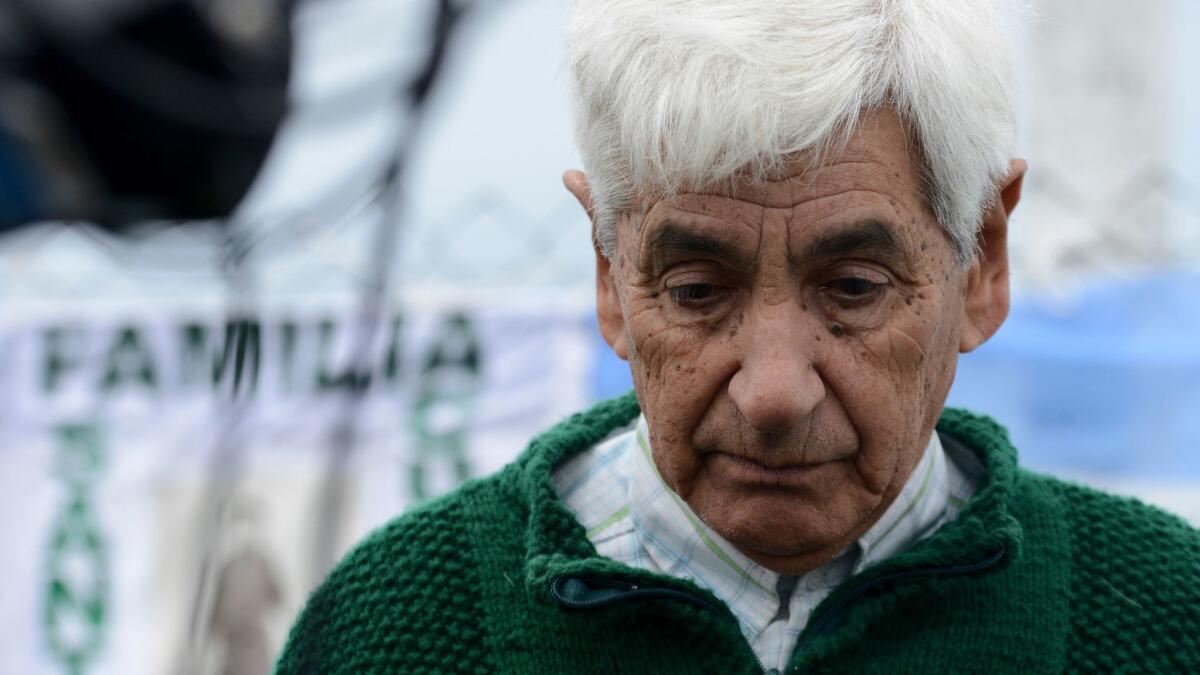
Even as the lack of good news has made the outlook increasingly bleak , the search operation headquartered at the Patagonian city of Comodoro Rivadavia, 750 miles to the south, continues to gather force. Weather conditions Tuesday improved dramatically from the gale-force winds and 25-foot swells reported the day before.
Specialized rescue teams from the United States and other nations continued to deploy in Atlantic waters to help the Argentine navy search for the lost sub. Contact was lost after the sub’s captain, Pedro Martin Fernandez, messaged that the craft’s batteries had failed.
The vessel has only a seven- or eight-day supply of oxygen unless it has been able to surface, authorities say. Tuesday marked the sixth day since the 30-year-old German-built sub went missing.
U.S. Navy Cmdr. Michael Eberlein, who heads the special submarine rescue unit, has arrived at Comodoro Rivadavia to help direct the rescue operation along with Argentina Navy Capt. Gabriel Actis.
The international team of ships and aircraft, which already includes assets from the U.S., Britain, Brazil, Peru and Chile, welcomed two Norwegian tugboats that arrived from oil drilling platforms in the Straits of Magellan. Also joining the operation were aircraft lent by Germany, France, Colombia and Uruguay.
Britain, which in 1982 fought a brief, bloody and victorious war with Argentina over the Falkland Islands, said Tuesday it was sending a specialized team of Royal Navy paratroopers called the Submarine Parachute Assistance Group to stand by for a possible rescue. The British already have lent two ships and a C-130 Hercules cargo aircraft to the effort.
Special correspondents D’Alessandro reported from Mar del Plata, Argentina, and Kraul from Bogota, Colombia.
ALSO
Sounds heard in deep ocean were not distress signals from missing submarine, Argentine navy says
More to Read
Sign up for Essential California
The most important California stories and recommendations in your inbox every morning.
You may occasionally receive promotional content from the Los Angeles Times.
